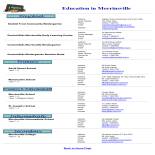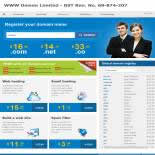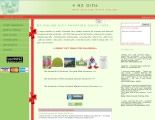Local search optimisation can be a decisive factor in how a site ranks locally and, consequently, in how much traffic and clients it drives from local, on-the-go searches.
Fortunately, major local search tactics are not that hard to master. Follow the six steps below to achieve the best results in terms of SERPs, traffic, and conversions on the local market.
Claim Google My Business
Failure to claim your company’s account at Google My Business may be the reason your website does not show up at the top spot of Google’s local search results. If you are not there (and Bing Places for Business), you are missing out on incredible opportunities to drive local traffic.
With Google’s local three-pack considered to be the coveted spot for every local business, you need to "please" Google to get listed there:
- Go through the verification process. Google will send you an actual postcard, with a private PIN inside (provided you register at the GMB (Google My Business) website and you own a business’s physical address). P.O. boxes are not allowed.
- Fill out all GMB listing elements: logo, photos, description, categories, business hours, payment methods, physical address (if any), phone number, website, etc. This information must be consistent across your website, GMB, and other directories.
- Optimise your GMB listing. Ensure that all text elements are written for humans and feature your top-priority local keywords (e.g. city, neighborhood, type of service, brand name, etc.)
According to Google My Business guidelines, any business can be unlisted if they violate any of the following rules:
- Using a URL redirect instead of a site’s actual URL.
- Stuffing a company’s name field with keywords.
- Registering multiple GMB listings for one company.
- Using any address that is not your business’s actual physical address.
Register with online directories and listings
According to a research, link signals play a key role in how sites rank in local search. However, many website owners pay zero attention to online directories and listings, which are a safe source of relevant, high-quality links.
The process here is simple:
- Find top business directories to get your company listed. Google, Bing, Yahoo!, Yelp, Neighbourly and Yellow Pages are recommended.
- Research local business directories. Check out local media and government websites, or simply do a Google search.
- Fill out and optimise your directory accounts. Be descriptive, write for humans, and do not forget about keywords. Confirm that all business details are consistent across every directory.
- Bonus tip! Like directories and listings, citation data aggregators feed search engines with crucial bits of information about your business, such as your business name, address and phone number (NAP). Ensure that all information you submit to CDAs is consistent. Do not confuse your customers and Google.
- Optimise titles and meta descriptions
Titles and meta descriptions are still hugely important in local search (see our latest special offer above). Customisable HTML elements act as ads that define how a page’s content is reflected in search results, and they have to be relevant enough to get clicked.
Since titles and meta descriptions are limited to approximately 60 and 150 characters including spaces respectively, they can pose a challenge. These tips should help:
- Research the local keywords you want to rank for; analyse your competition.
- Place local keywords at the beginning of the tag.
- Don't use page names from your titles (e.g. Home, Services, Products, etc.)
- Keep your titles relevant to corresponding pages; never duplicate your titles.
- Use keywords for humans that are repeated in the text on the page.
Collect and manage online reviews
According to surveys on the subject, up to 97% of consumers read online reviews for local businesses, with 85% trusting them as much as personal recommendations.
Since reviews can become your ultimate weapon for building trust and a positive reputation among your targeted audience, it makes sense to ask for them and research shows that over 60% of those asked will provide a review.
So where do you start? Implement this simple process to manage your reviews:
- Respond to each review, whether positive or negative. 30% of consumers consider an answer to their review as a key factor when judging a local business.
- Manage Google My Business reviews for your SEO. According to Google, the amount and score of GMB reviews are calculated into local search ranking.
- Manage other reviews, e.g.Facebook, Trade Me etc. for marketing. These are trusted review platforms among consumers.
- Bonus tip! Since consumers read an average of seven reviews before trusting a business, develop a strategy for generating ongoing positive reviews. Make sure to contact happy customers and ask for their reviews to mitigate the effect of negative reviews.
Appear in local publications and media
On the link-building side of things, content is your most powerful weapon. Reach out to local publications, media sites, and bloggers to serve up content that soothes the pain points of local consumers. You will not only get coverage and reach new audiences, but you will also garner relevant backlinks that push your site up in local searches.
Follow this process to amplify your linkbuilding efforts through content marketing:
- Make a list of local publications where you want your business featured or mentioned
- Research the people in charge (e.g. editors, journalists, bloggers, etc.)
- Figure out how to contact them
- Start sending out your individual pitches with content ideas
- Collect responses and find common ground on publication terms
- Analyse feedback if your attempts fail
- Bonus tip! Consider cooperating with other local businesses to build powerful content. Reach out to your partners to research ideas and create content with maximum appeal to a wide audience. This will help you compete with your competition.
Conclusion
SEO changes all the time, and local search is not much different. However, the ideas above will provide a solid base for your local SEO strategy. Implement these tactics, and you will outperform your competition in local search results.
|









